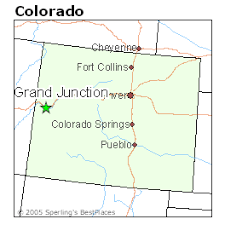
Employees of the Oklahoma Field Office of the federal Bureau of Land Management will soon find their national headquarters located in Grand Junction, Colorado and not Washington, D.C.
The Bureau of Land Management Oklahoma Field Office manages 7.4 million acres of federally owned land and minerals in the states of Oklahoma, Kansas, and Texas. The Field Office administers the extraction, use, and sale of Federal minerals (primarily oil, gas, and coal). The Field Office also provides oversight to Indian mineral owners by ensuring oil and gas operations on Indian lands are conducted according to lease terms and conditions, approved plans, and existing laws and regulations.
The Field Office also administers an active Wild Horse and Burro Program that accounts for 20 percent of the annual adoption target for the entire Bureau. The Wild Horse and Burro staff conducts 12-15 satellite adoptions per year in locations throughout BLM New Mexico’s four-state jurisdiction resulting in the adoption of nearly 600 animals annually.
U.S. Sen. Cory Gardner announced the move this week saying it brings an end to years of successful lobbying efforts by officials in Colorado. The plan will move nearly 300 workers from the Interior Agency as part of a “broader push to shift power away from Washington,” according to the Washington Post.
But the plan has its opponents including former Interior scientist and whistleblower Joel Clement.
“To avoid being marginalized in budget and policy decisions, the BLM Director needs to be close to agency and Congressional leadership in DC,” he tweeted.
House Natural Resources ranking member Rob Bishop says Interior Secretary David Bernhardt told him all senior positions are under consideration in the move.

“There will be positions that will move to many different states in the West,” Bishop told POLITICO’s Morning Energy report. “He will keep some people here in Washington.” Roles will go to states like Utah, Nevada, Idaho, New Mexico and Arizona. “Every [western] state will have something where it makes sense,” he said.
Bishop expects appropriators to review the move but hopes Congress will allow it to proceed. “He’s got some money that can he do it with right now, but for the long-term Congress has got some kind of say on what the money should be,” he said, adding “so how much flexibility he has to implement it, I’m really not quite sure.”
Interior didn’t clear the move with the House appropriations committee, a committee spokesman told ME. That may not bode well when the committee has to weigh in on any long-term moves: Congressional lawmakers have already complained that Interior had not been forthcoming enough with details on its reorganization plans. Former Interior Deputy Secretary David Hayes argued more congressional buy-in would be needed from lawmakers outside the region: “I recommend that any affected staffers rent, not buy,” Hayes tweeted.



